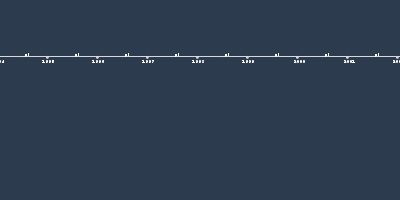1 gen 1791 anni - 1791: Slave rebellion in French-ruled St. Domingue. Rebellion fuels white fears.
Descrizione:
In 1791, revolt broke out in the French Caribbean colony of St. Domingue, which was located on the western third of the island of Hispaniola (the eastern two-thirds was owned by Spain and called Santo Domingo). One of the wealthiest colonies in the Americas, St. Domingue produced half of all the sugar and coffee exported to Europe and the United States.The rebellion started when free blacks were not granted citizenship, as France's Declaration of the Rights of Man had decreed. Slaves joined in the revolt and returned the brutality their masters had shown them, murdering and raping whites and torching the island. Because slaves and free blacks outnumbered whites by a ratio of more than 10 to 1, the revolt quickly spread through the port city of Cap Français and surrounding plantations. In 1794, the National Assembly of France abolished slavery in its colonies, and in January, 1800, when Spain formally ceded its colonial claims to France, Toussaint L'Ouverture, the leading general of the black revolt, became the undisputed leader of the entire island.
In 1802, Napoleon Bonaparte dispatched 20,000 troops to Saint Domingue to depose Toussaint and reinstitute slavery. Toussaint was captured and exiled to France, where he died in prison the following year. The rebels continued to fight, and by the end of 1803 Napoleon conceded defeat in Saint Domingue. Having lost 35,000 men, the French evacuated their former colony. In the 13 years of fighting, more than 100,000 black lives had been lost. On January 1, 1804, President Jean Jacques Dessalines proclaimed the free republic of Haiti -- deriving the name from an indigenous word meaning "a higher place."
Aggiunto al nastro di tempo:
Data:
1 gen 1791 anni
Adesso
~ 234 years ago
